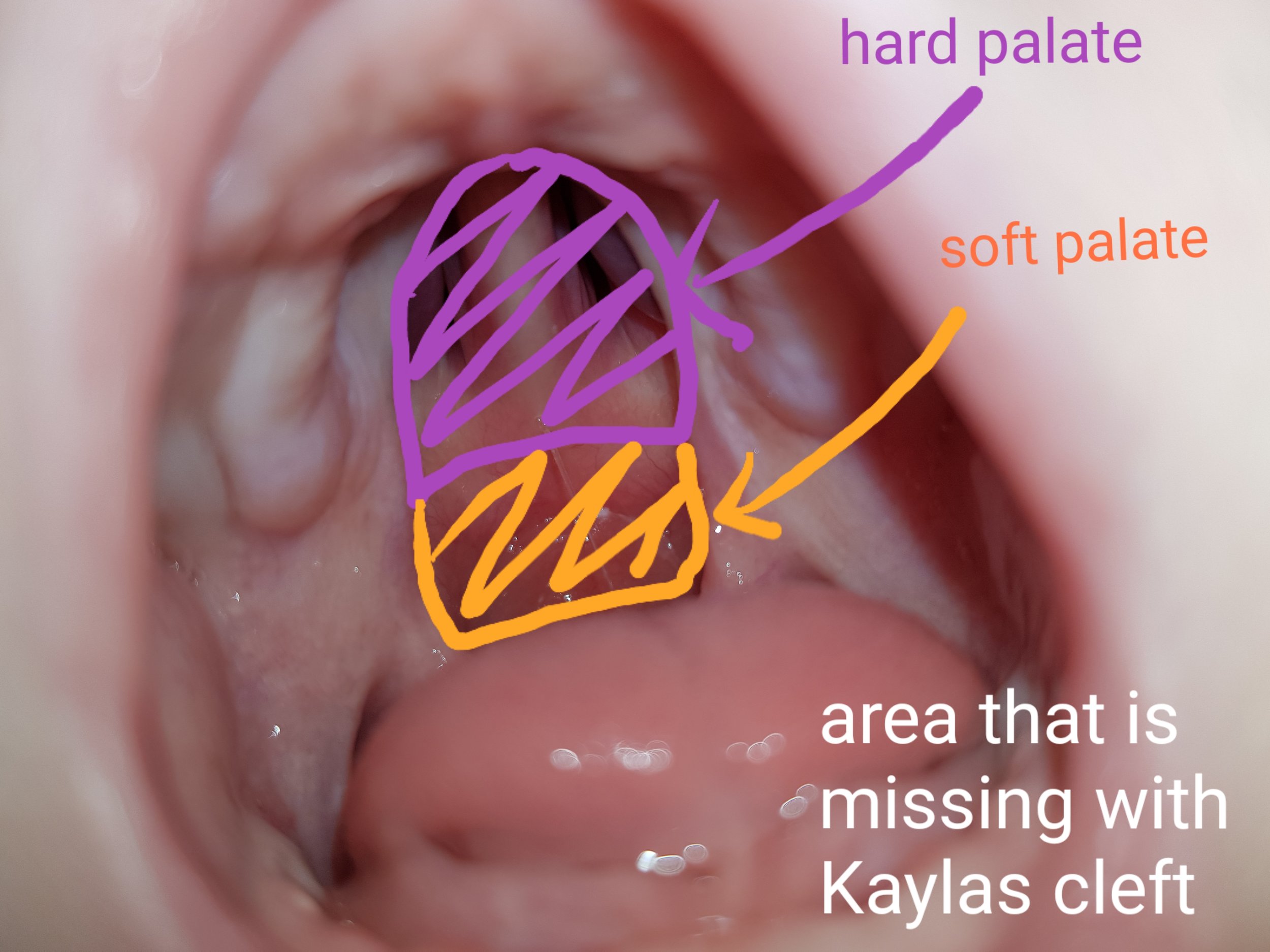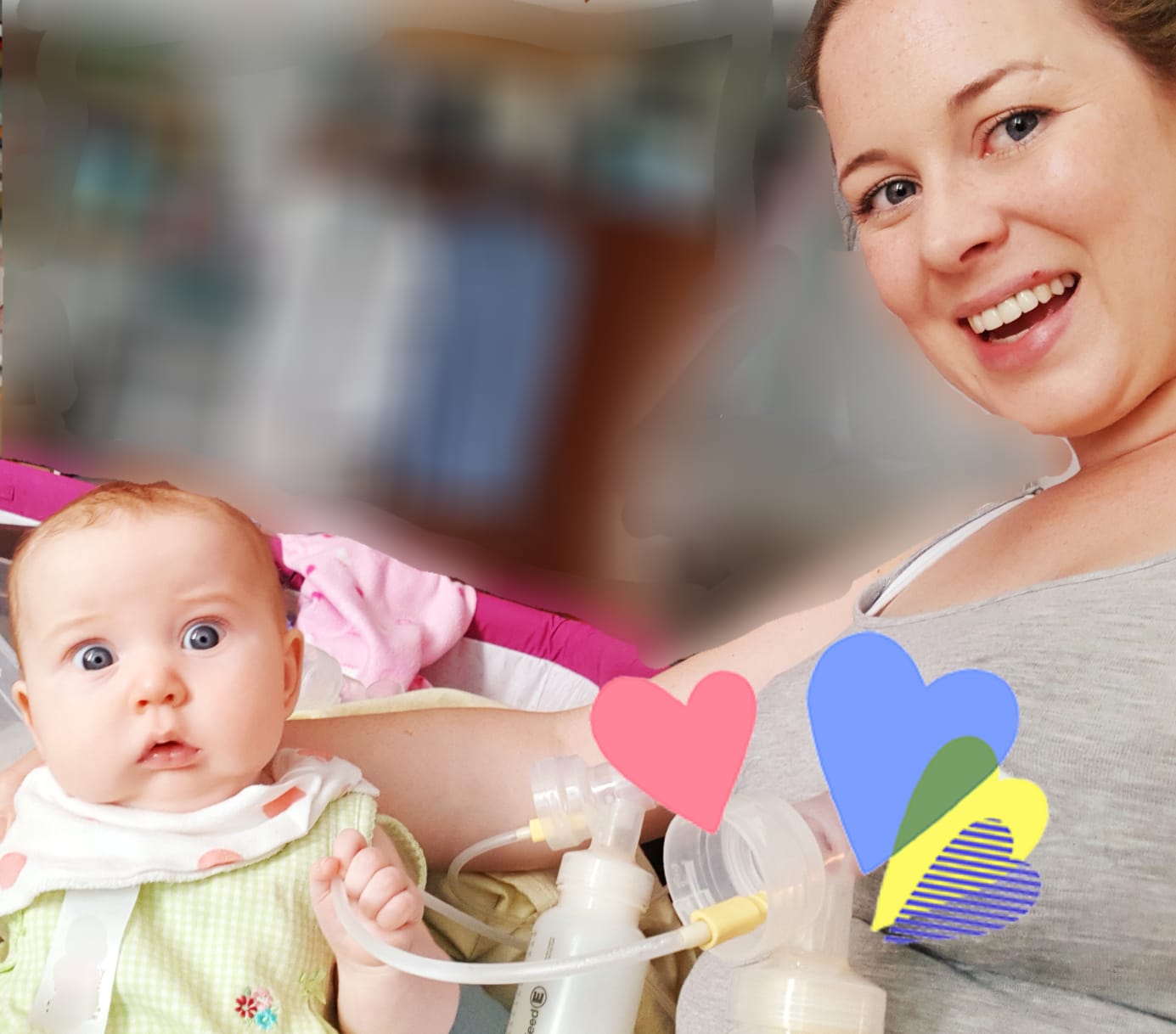Mothering a baby who has Down Syndrome
/My name is Gillian Phelan. I was invited by Doulacare Ireland to talk a little bit about my daughter Elliah who was born with Down Syndrome and my experience with all that comes with it, and also what we are doing to help her develop at as normal a rate as possible.
Firstly a little back story... Elliah is my first child, born thanks to IVF (after many failed attempts and surgeries) in October 2018. I had an excellent pregnancy up to 34 weeks when my placenta rather suddenly shut down leading to a real emergency c-section. A movie-worthy dramatic scene. But that’s a story for another time.
Baby had to be taken to Special Care because she was small (4lbs), but breathing on her own and otherwise doing pretty well. As soon as I saw her I said to myself that her eyes looked ‘Down Syndromey’... Tests went off and we waited and waited and waited... Every day the consultants were hopeful that the results would be back “tomorrow”, or “ by the end of the week”. There really was a doubt in our minds. Some of our nurses said they didn’t think she had it. Others were less sure. Her eyes were literally the only tell tale - she didn’t have any of the other signs on the checklist. It took 17 days for the diagnosis to come back from Crumlin - 10 minutes up the road from The Coombe where we were. It was confirmed that Elliah has Trisomy 21 - which means that she has a third copy of her 21st chromosome. Nobody knows why it happens, but in 1 out of 800 births it just does.
So we were told what is to be expected of our daughter, and quite honestly, from the get-go it seemed very limited. We were being told not to expect much. That there isn’t much hope that she be independent or have a fulfilling life in the usual sense. Well, I absolutely reject that. Their limitations, not ours. Putting a child in a box labeled ‘limited’ will only encourage them to be just that. This is not acceptable for me. Additional needs or not, each child develops at a different rate, and faces their own individual challenges.
Needless to say, once the initial settling in period had passed, we looked into alternative therapies to help ‘wake up’ her senses so to speak. Basically we were interested in anything that would help bridge the gap between herself and other babies of the same age. Our goal will always be that she be as close as possible to doing the things that her peers are doing. Whether that be sitting up unassisted, crawling, walking, talking and all those other key achievements down the line. We are linked up with St Michaels House in Ballymun now and everyone is great. They do a fantastic job, they really do. But relying on that one Physio or Speech therapist visit a month and going one morning a week to the pool just isn’t enough. Physical and mental development go hand in hand, and we have now found a set of daily stimulation exercises that work for us and are giving good results.
We travelled to France to meet with an ex Montessori teacher who has a 5 year old daughter with DS. She has become an alternative consultant on all things DS, and sees families to build a personalised program for their children. Her daughters name is Marie, and she is quite exceptional. Her speech and motor skills are pretty much those of an average child of her age. She is at the same level as all her friends and attending mainstream school without a Special Needs Assistant. Emmanuelle started out with her solid Montessori background and has done extensive research and training to complement that. She saw Elliah over 2 days and gave us a program to follow based on her particular strengths and weaknesses.
We were highly recommended to read Glenn Domans (horribly entitled) book ‘How smart is your baby?’ Domans research stretched over 40 years and he worked with thousands of children and their families - for the most part the babies and children in his studies had brain damage, not DS. Specific exercises and hyper-stimulation techniques are used to override the problem and wake up the affected senses. Now I’m not going to lie, some of this stuff is totally counter intuitive for the mother of a small baby, but his results really do speak for themselves. So after reading the book, and seeing Emmanuelle in France, we had a specially adapted exercise and stimulation plan for our baby.
We have built her a crawling ramp to encourage as much movement on her tummy as possible. Children with DS tend to have issues with their muscle tone, so strengthening those all important neck and back muscles is vital.
We also had to ditch the traditional play mat which was not at all adapted to her needs. It has been replaced with a large gym mat - exactly like the ones we used to have in school (the navy blue yokes).
We also have a Dayvia light which is on constantly during her sessions. The very bright light is recommended for sensory stimulation of course, but also for helping with the distinction between day and night. Not to mention luminotherapy in our dark winter months.
The last ‘big’ thing we invested in after reading the research is an electromagnetic machine called an Earth Pulse. Designed to help athletes and Racehorses recuperate better, it emits a field adapted to the individuals needs so their rest is optimised and thus their performance enhanced. During their testing process they realised that all of the people partaking in the trial who had thyroid issues gradually stopped needing to take their medication. This is a key factor in DS. Our expert in France insists that ALL children with Down Syndrome have an issue with their thyroid. Even if a blood test says it’s functioning, ie producing satisfactory levels of thyroxin, there are no further tests done to check if that thyroxin is doing its job as it should in the cells. It really is one of those things where you believe it or you don’t. We thought that we have nothing to lose and a whole lot to gain. It’s been a few weeks now and Elliah is definitely more alert, more interested in her surroundings, more of a sparkle in her eye. She’s even sitting up in her highchair which is a big milestone and around the same time as an averagely developing baby.
Emmanuelle has been using the machine under Maries bed for a couple of years now and she insists that she started to see a difference in her capacities after a few weeks. Since we seem to have a similar timeline, I’m certainly inclined to agree.
It’s a lot. It’s very time consuming. But seeing Elliah improve every day is all the motivation I need
(I’ll have a shower when she’s 2 🤪) I’m also exclusively pumping which doesn’t help time-wise, but that’s my choice. It’s not a chore though. Elliah is not a burden. We feel as much love, and pride as any other parents. DS comes with the innate capacity to truly be oneself. To find joy in the simplest of things and to love without conditions or judgement. She is funny and sassy and an absolute ray of sunshine. I simply cannot imagine life without her smile.
Hopefully we are putting in place a foundation that will help our daughter be her best self and have more choices in her future. We will at least know that we gave it everything we had.
Well done if you’ve gotten to the end of this post 😂
What we wouldn’t do for our kids.












